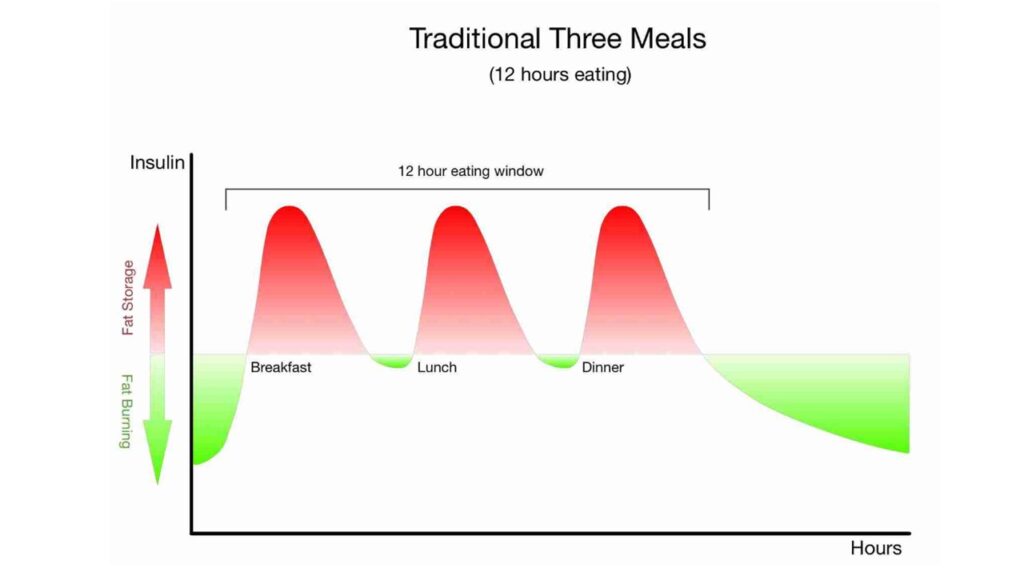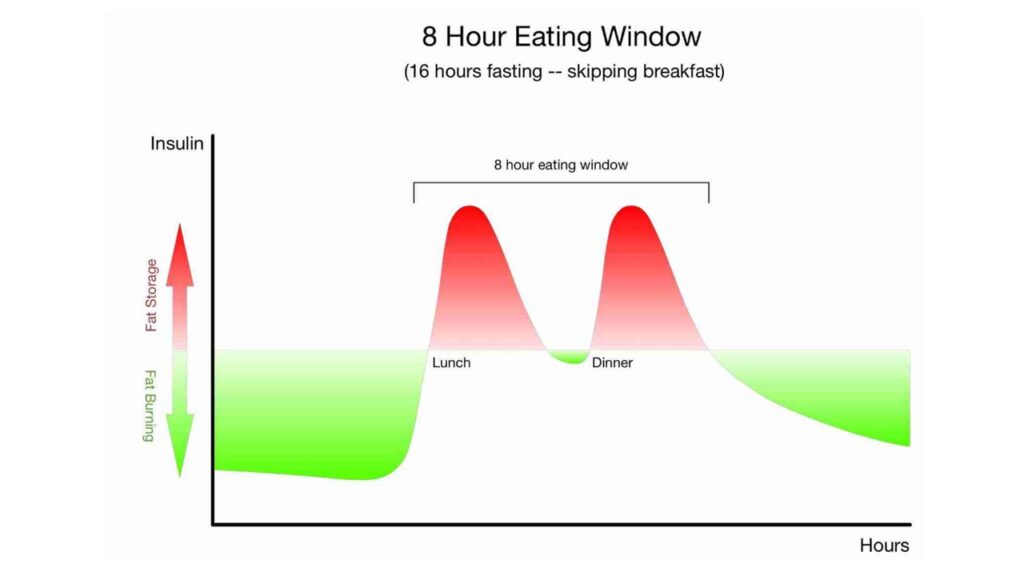By Mike Thomas, NBHWC December 21, 2023
In the changing world of weight loss plans, one method is getting a lot of attention for its possible benefits: intermittent fasting. When you pair this well-known method with a plant-based diet, it can be a strong tool for losing extra weight and boosting your overall health. In this blog post, we’ll take a closer look at intermittent fasting, especially the idea of eating during a shorter time, and see if it’s a good fit for trying to lose weight with a plant-based approach.

Understanding Intermittent Fasting: Shortening the Feeding Window
Intermittent fasting is when you switch between eating and not eating at certain times. Even though it’s crucial to eat plenty of whole plant foods, intermittent fasting is more about when you eat than what you eat. You can make your eating time shorter by skipping a meal, like breakfast or dinner. This makes the time your body isn’t eating (the fasting period) longer. By doing this, your body uses stored energy, burning more fat for fuel.
Skipping breakfast, for instance, might mean delaying your first meal until later in the day, like lunch. Alternatively, skipping dinner would mean finishing your last meal earlier in the evening. By doing so, you create a longer fasting window, potentially promoting weight loss through more effective fat burning.

Hydration and Hunger
Water is important because it helps control hunger and supports various bodily functions, like digestion and metabolism. If you want something with flavor during your fasting period, unsweetened iced tea and black coffee can be good choices. Just make sure not to add sugar, cream, or anything else with calories because that disrupt your fasting. It’s crucial to stay hydrated during fasting, and water, unsweetened iced tea, and black coffee can help.

These drinks don’t have calories, so they won’t break your fast. This is important because having calories, either from food or drinks, makes your body release insulin.
Insulin Levels and Fat Burning: The Connection
A big reason why intermittent fasting works is because it affects how much insulin is released. When you eat, your body releases insulin to manage your blood sugar. But if your insulin levels are consistently elevated, it can make it hard for your body to burn fat. In the image below, which represents a 12-hour time when you eat, you can see three red curves going up. These curves show when you have meals and when insulin levels rise, meaning your body starts storing fat instead of burning it (or, in simpler terms, stops burning fat). The fat burning, which happens during fasting, is represented by the green area below the horizontal line.

In the second picture, when you’re fasting, insulin levels go down. This drop in insulin tells your body to stop relying on glucose (sugar) for energy and start burning stored fat instead. This is why intermittent fasting has the potential to be seen as a good plan for losing weight—it creates an environment that encourages using up fat. In this second image, where breakfast is skipped and only lunch and dinner are eaten, the time for eating is shorter, so the time for fasting (when your body burns fat) is longer. Check out the amount of green below the horizontal line in this second picture—it’s much more than in the first one.

Is Intermittent Fasting on a Plant-Based Diet Right for You?
Even though intermittent fasting seems promising for many people, it’s crucial to think about whether it fits with your lifestyle, preferences, and health goals. I recommend talking to your doctor to make sure you’re making the healthiest choice for your specific situation.
If you follow a plant-based diet, make sure the meals you eat during your eating time give you the right nutrients for energy and well-being. Eating a lot of food is important on a whole food plant-based diet, so be ready with healthy foods when it’s time to eat. Intermittent fasting might be tricky for some people. If you skip breakfast and start eating at lunchtime, be careful not to be so hungry that you make unhealthy choices.
Personally, I shifted to a whole food plant-based lifestyle in January 2017 and dropped 23 pounds in about 6 months, going from 178 to 155. My college weight was 155, so I was happy with the result. In 2019, I started learning more about intermittent fasting, so I decided to try it out on myself. The video below talks about my surprising experience with intermittent fasting. I’ve included some resources about intermittent fasting in the video description.
Incorporating intermittent fasting into a plant-based weight loss strategy can be a practical and effective approach for many individuals. If you opt to conduct your own experiment, you can do so by narrowing your eating window, staying hydrated with water, unsweetened iced tea, or black coffee, and gaining an understanding of the role of insulin in fat burning. This way, individuals can customize this method to meet their unique needs and preferences.
As with any dietary or lifestyle change, consistency is key. Experiment with intermittent fasting on a plant-based diet, monitor how your body responds, and make adjustments as needed. Ultimately, the key to successful weight loss is finding an approach that is sustainable and aligns with your individual preferences and health goals.
If you’re interested in chatting with me about intermittent fasting or any health-related topics, such as changing your lifestyle, losing weight, or improving your health, please reach out. I’m welcoming new clients for both personal 1:1 coaching sessions and for my 12-week group coaching program, More Plants Less Weight.
That’s it for now!
God Bless!
Mike
This blog is for educational and informational purposes only and solely as a self-help tool for your own use. I am not providing medical, psychological, or nutrition therapy advice. You should not use this information to diagnose or treat any health problems or illnesses without consulting your own medical practitioner. Always seek the advice of your own medical practitioner and/or mental health provider about your specific health situation. For my full Disclaimer, please go to CoachMikeThomas.com.

Excellent post. I was checking constantly this blog and I am impressed!
Extremely useful information specifically the last part 🙂 I care for
such information a lot. I was seeking this particular information for a
very long time. Thank you and good luck.